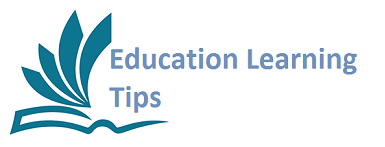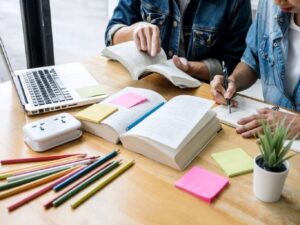Learning takes time. We invest time, energy, money, sometimes even a lot of money. The outcome of the learning is uncertain, in the face of difficulty doubt may arise. Will I get there? So let’s start thinking. Is my way of learning optimal? Is there a better approach? Am I wasting my time? So how do you learn?
Fortunately, empirical studies have demonstrated the existence of a formidable learning technique, whatever your type of intelligence. It’s not a panacea, it’s not magic, this approach is difficult, frustrating, it requires rigor and intellectual honesty. As long as we agree to pay this price, we open ourselves up to a vision that outclasses all the others: it is the technique of recovery associated with systematic testing.
Whether you are a high school student, a student or a professional, the exercise of memory recovery of knowledge is the key to learning, to creating robust mental models, to mastering the subject you wish to learn.
The retrieval, or recovery in French, is the most effective method for long-term memorization. I used it myself in my learning to program. I saw results from the first days.
Psychologists and cognitive scientists have been studying study processes, different learning techniques, and brain function for decades.
The evolution of neurology and empirical evidence show that retrieval, the act of “invoking” knowledge from memory, is the best way to learn and retain over the long term.
Why learn for the long term? Quite simply because it is the very essence of expertise . Studies of brain plasticity have shown that experts’ brains are forever altered by their mastery.
An expert is only someone who has built an advanced mental model of his field. Mastery comes from our ability to innovate, to stop following the rules. The mental model, the foundation of mastery, is a form of skill deeply rooted in our brain with multiple neuronal connections: it allows us to apply knowledge in various contexts.
Like a seaside rock, gradually altered by the ebb of the waves, our brain is modified with each memory recovery. Learning effectively, learning for the long term allows us to evolve our brain, to build our future expertise and the best approach for this is recovery.
Most learning sites deal with this methodology. Learn to read better, learn to speak English, learn a new technique: recovery is applicable to all subjects.
Whether you are a high school student, a student or a professional, it is a necessity to learn constantly. For beginners, to revise, to create robust mental models or to master the material you want to learn: the exercise of memory recovery of knowledge is key. It’s the best way to learn.
What about other learning methods?
Classical forms of learning, intensive reading, rereading and note-taking seem to be the most effective. Same for education, we believe that classical teaching, presentation of the course and then practice of exercise is the best technique. It is not so. These classic practices even lead to illusions of mastery which we will discuss later. Recovery corrects the problems of other forms of education and empirical studies demonstrate its effectiveness and its vast superiority over other learning methods.
In fact, the effectiveness of retrieval is directly linked to the intrinsic functioning of our neurons and their procedures for rooting new information.
I will keep it simple. If you wish to have a more global understanding, I advise you to refer to my article on this subject.
The more the links, the more we will have mapped the knowledge and the more it will be anchored and the easier will be the memory retrieval.
Our brain receives information from our senses, then encodes it and stores it in short-term memory: working memory. Here memory disappears unless we consolidate it. Consolidating it pushes us to reuse the encoded information. How does the brain do it? He will look for it, he will trace the neuronal links until he recovers the necessary information. Recovery always initiates this procedure. This is the strength of recuperation compared to other learning methods: it constantly activates the consolidation procedure, it allows knowledge to be perfected.
During this consolidation phase, the information is again malleable. We can create new neural links with other acquaintances. With each process of reconsolidation, with each practice of retrieval, we create new links. The more the links, the more we will have mapped the knowledge and the more it will be anchored and the easier will be the memory retrieval. The effect is better memorization. This is why retrieval is the best approach.
Here’s why language learning apps like Babbel or Duolingo aren’t optimal: They don’t always use fetch. It’s a good starting point but it’s clearly not the most effective way.
Preparing for the retrieval: the conceptualization of knowledge
I told you, knowledge must be mapped. I like this term because it illustrates the concept of mental models very well. When we learn, when our brain consolidates knowledge, this has the effect of creating neural connections. These connections create a mental structure. This is our way of learning. We create mental models, we create mental structures of knowledge.
Although the retrieval helps to develop these mental structures, it mainly has the effect of consolidating them. The foundations of these structures like those of a building must be well established and their cement is understanding.
To conceptualize knowledge, to create optimal mental connections, to link the new structure with the rest of your knowledge you must first understand it.
Give yourself time : understanding can take a long time, especially on complex topics. For this you must accept the procedure, submit to the difficulty and spend time on a problem. If you’re really trying to figure it out but you don’t and you’re going to see a solution, you’ll have prepared the neural connections by spending time trying. Your modeling, your retention of future information will only be better.


